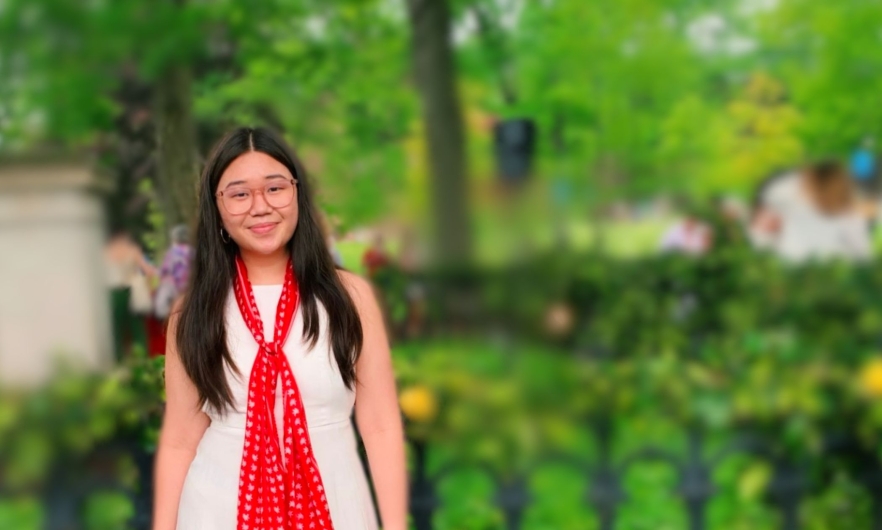HBS Field Placement Journals: Sophia Jung

To prepare for domestic and international career opportunities in public health, all MSPH in Health Education and Health Communication students participate in a full-time field placement for least six months.
In her HBS Field Placement Journal, second-year MSPH student, Sophia Jung, reflects on her field placement experience as a clinical research coordinator at the Johns Hopkins School of Medicine.
Anticipated graduation date: May 2024
Adviser: Vanya Jones, PhD
Field placement organization name: Johns Hopkins School of Medicine
Field placement role: Clinical research coordinator
Why did you choose your field placement experience?
I chose my particular field placement experience because I am interested in connecting medicine and public health, particularly in cancer patients. I also am really interested in addiction, cancer research, and substance use, and this position allowed me to immerse myself in all of my interests.
How did you discover (and land) your field placement?
I worked as a clinical research assistant on a study that looked at conditioning therapy for pain management post-surgery in head and neck cancer patients. I really enjoyed working with the PI, and I am drawn to this topic from a public health standpoint, so I reached out to the director of the research group this study fell under, and we were able to work out a field placement position.
What does a typical day of your field placement look like?
It varies every day, but most days, I have meetings with my field placement adviser on the studies I handle in the team, team meetings, and meetings with sponsors for the clinical trials and research studies. I visit patients in the hospital to consent or carry out the study; conduct medical chart reviews; email doctors, PAs, nurses, and others for study-related tasks and patient updates; work on IRB documents; and more.
What have you found most rewarding about your field placement?
I think being able to interact with patients enrolled in the different studies has been most rewarding. I really enjoy being able to talk to them about the study, but many open up about their life outside of being a patient. It is really nice being able to form a professional relationship after seeing them for so many days.
What advice do you have for current or prospective students as they think about their own field placement opportunities?
My advice would be to really think about the topic you are interested in engaging yourself in first and then reach out to labs, organizations, and other agencies. Also, do not limit yourself, and don't be afraid to make initial contact with a possible field placement agency. Lastly, find your field placement as early as you can, but don't be worried if you cannot find one at first!
How has your field placement influenced (or changed) your public health career goals?
My field placement has opened my eyes to different positions and opportunities to grow my public health interests, while also bridging the gap between medicine and public health for me. I have been able to connect with people from biotech companies, other research coordinators, physicians, IRB members, and more. Being able to connect and work with others in different fields and positions has made me more certain in what I hope to do in the future.
This interview has been edited and compressed. Views expressed are the subject's own.
